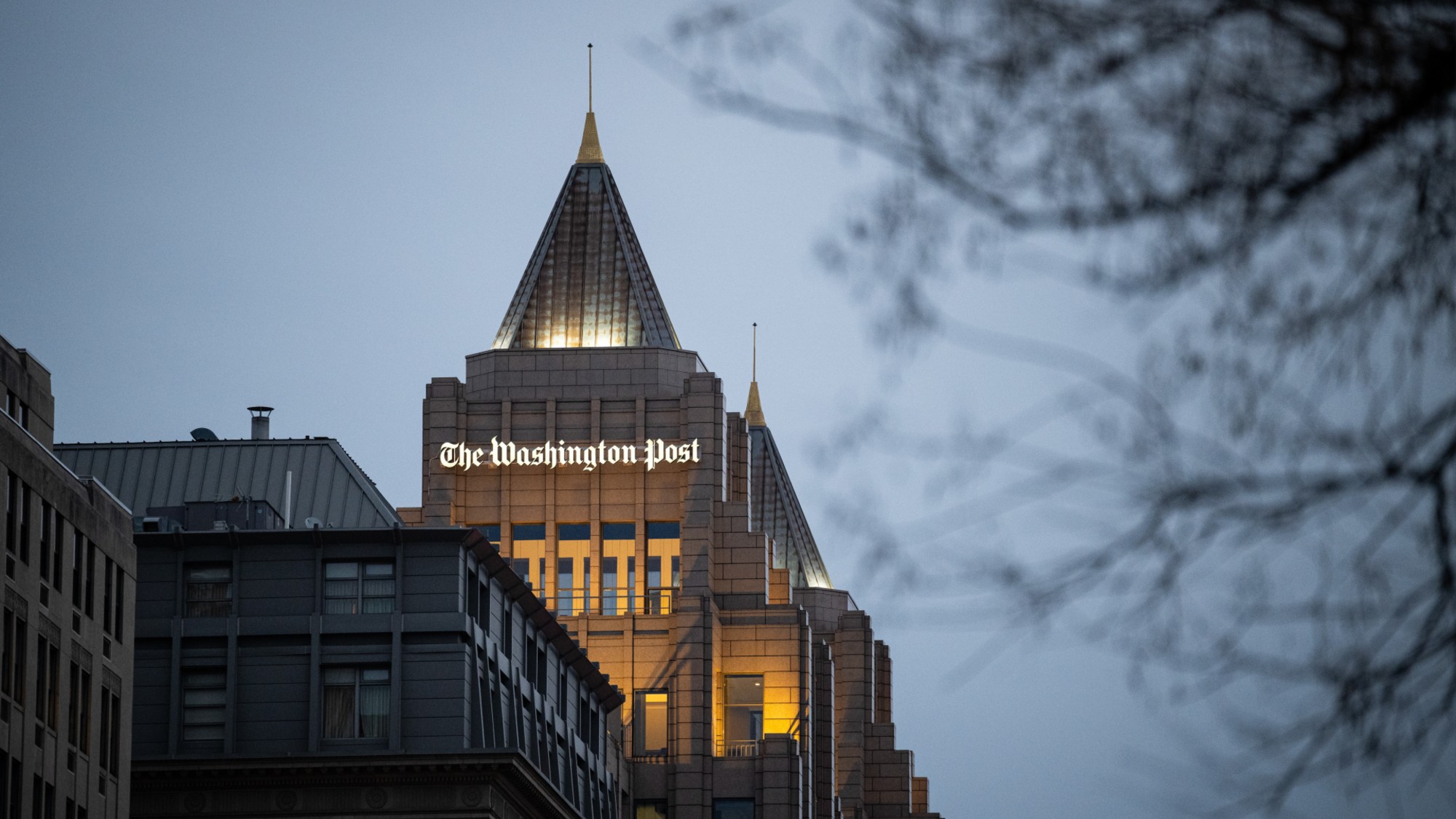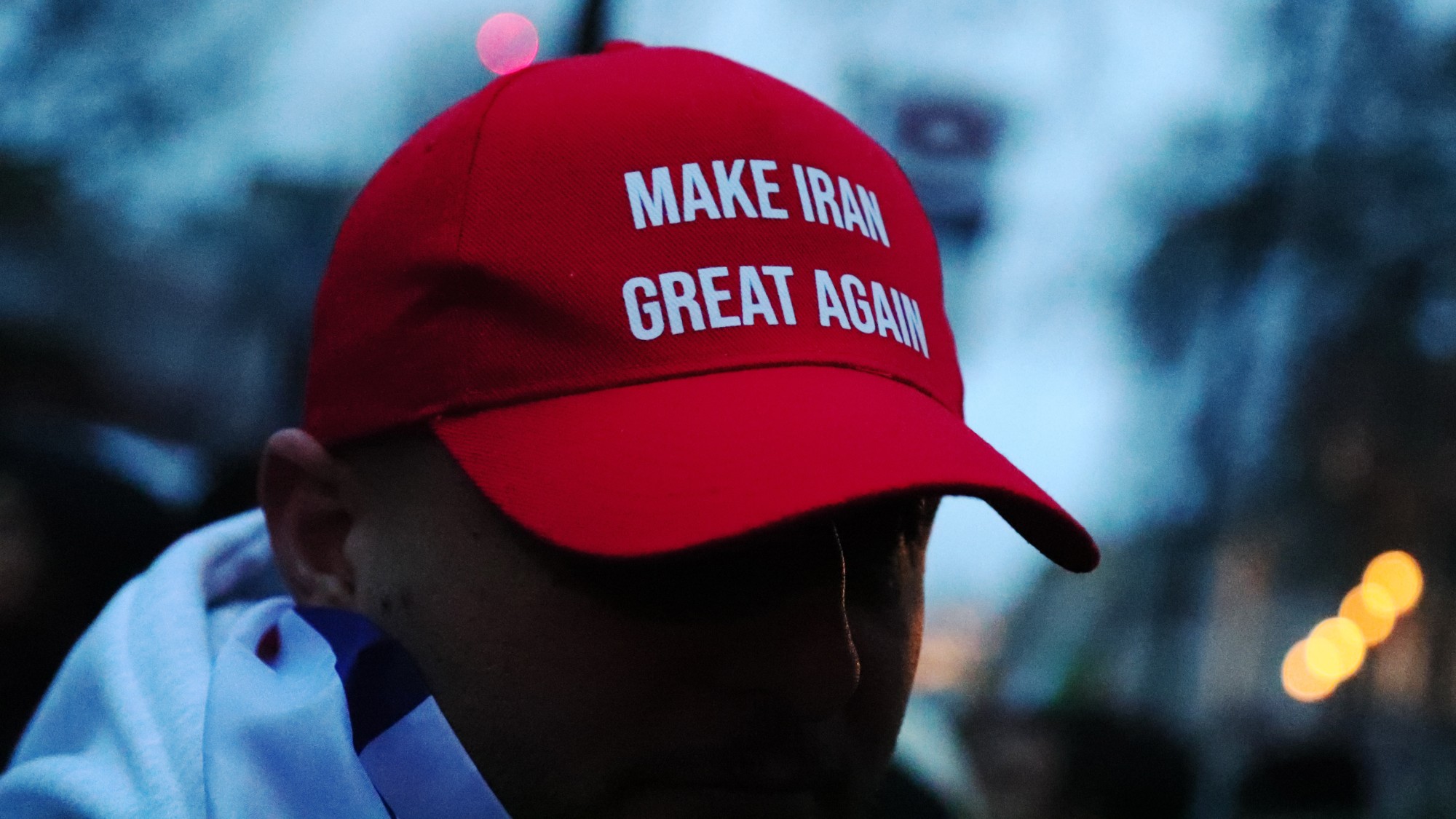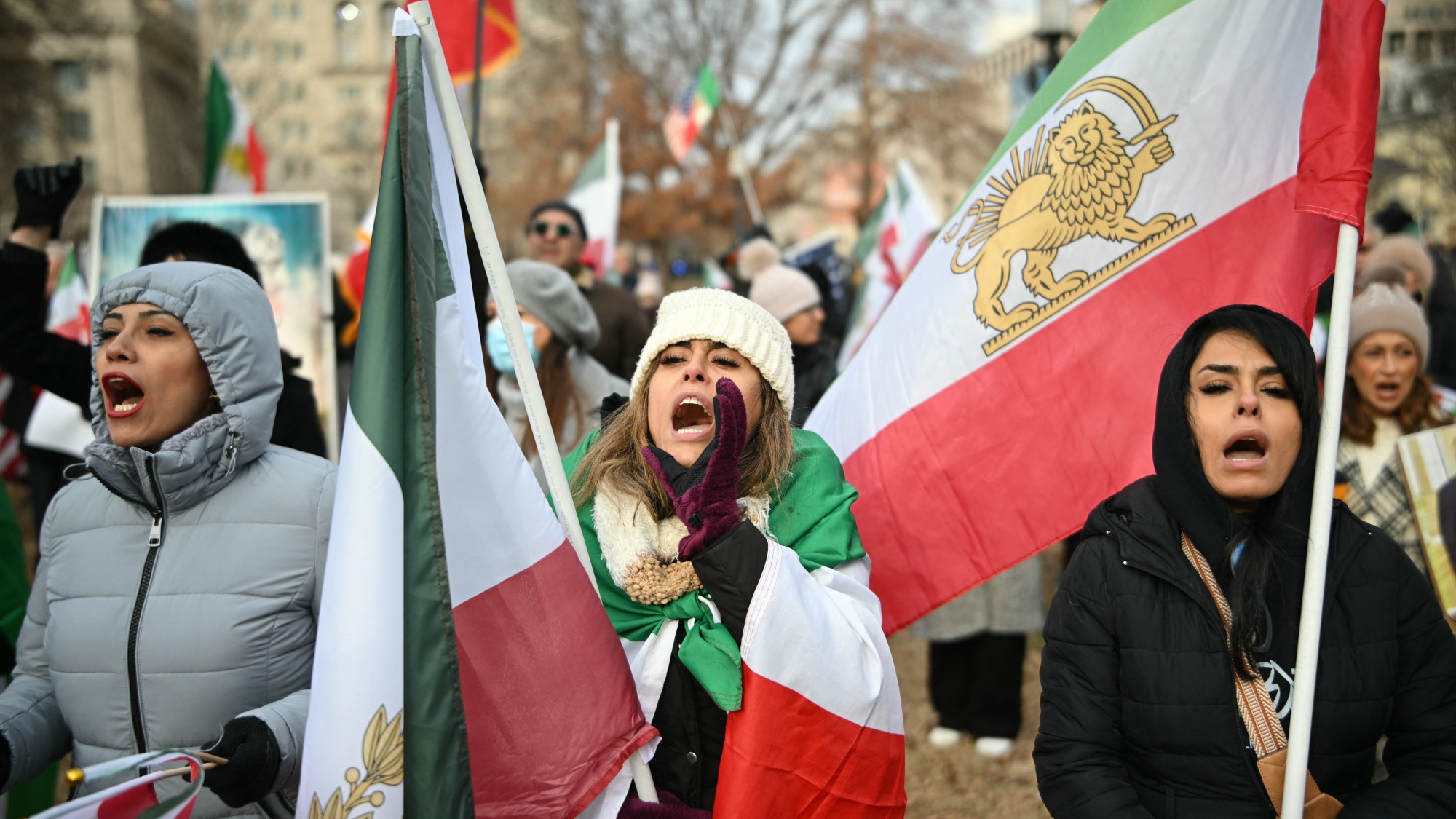Attorney General Barr has always been a cover-up specialist
There should be nothing surprising about this recent performance


A free daily email with the biggest news stories of the day – and the best features from TheWeek.com
You are now subscribed
Your newsletter sign-up was successful
It's clear that Attorney General William Barr has been an utter stooge for President Trump — just as dishonest as Rudy Giuliani, but far more effective. In his hearing before the Senate Judiciary Committee Wednesday, he spun, dissembled, concocted ridiculous hairsplitting arguments, and as Nancy Pelosi said Thursday, lied outright to Congress.
His performance has elicited a lot of stunned commentary from centrist journalists and politicians, who thought that Barr was one of the storied "honorable" Republicans. Moderate Sens. Doug Jones (D-Al.) and Joe Manchin (D-W.V.) now say they regret voting to confirm him.
But Barr's defense of Trump comports perfectly with his previous career. Cover-ups are just what he does best — and he's probably just getting started.
The Week
Escape your echo chamber. Get the facts behind the news, plus analysis from multiple perspectives.

Sign up for The Week's Free Newsletters
From our morning news briefing to a weekly Good News Newsletter, get the best of The Week delivered directly to your inbox.
From our morning news briefing to a weekly Good News Newsletter, get the best of The Week delivered directly to your inbox.
At the hearing, Barr continually insisted that his wildly deceptive four-page summary of the Mueller investigation was in fact totally fair and balanced — despite the fact that, as we recently learned, Mueller himself sent a letter to Barr angrily complaining about the summary the very next day. It "did not fully capture the context, nature, and substance of this Office's work and conclusions," Mueller wrote. "There is now public confusion about critical aspects of the results of our investigation," which "threatens to undermine a central purpose for which the Department appointed the Special Counsel: to assure full public confidence in the outcome of the investigations."
Indeed, it turns out that Mueller and his staff had already prepared a summary as well, but Barr didn't release it until the full redacted report came out — obviously because he wanted to spin the coverage to protect Trump.
This is also reportedly the crux of Pelosi's allegation that Barr lied to Congress. He told Rep. Charlie Crist (D-Fla.) at a previous hearing that he didn't know why Mueller's staff had objected to the summary, when in fact he had already received the letter.
But as Mother Jones' Pema Levy outlines, this is just par for the course over Barr's whole career. When he was attorney general for George H.W. Bush, he advised the president in the final days of his administration to pardon six people who were neck-deep in the Iran-Contra scandal. The Reagan administration had illegally funneled money to right-wing Contra death squads in Nicaragua by secretly selling arms to Iran, and Bush himself was widely expected to be implicated in the upcoming trial of former Defense Secretary Caspar Weinberger (who was pardoned and thus never went on trial). The whole investigation was effectively stymied. Prosecutor Lawrence E. Walsh said at the time: "the Iran-contra cover-up, which has continued for more than six years, has now been completed."
A free daily email with the biggest news stories of the day – and the best features from TheWeek.com
And as Jamelle Bouie detailed in The New York Times, while an assistant attorney general in 1989, Barr wrote a secret legal opinion justifying the straight-up kidnapping of foreign criminal suspects, without asking their governments' permission. The U.S. military duly took Panamanian dictator Manuel Noriega into custody, after a fruitcake operation involving blasting rock music day and night at the church where he had sought sanctuary. When Congress got wind of the memo, they demanded to see it, but he gave them a 13-page summary of the memo instead. Lo and behold, when Congress finally got its hands on the whole memo years later, Barr's summary turned out to be a complete crock. It "omitted some of the most consequential and incendiary conclusions from the actual opinion," as Ryan Goodman summarized on the Just Security blog. Imagine that!
But in future, probably the most telling portion of Barr's Senate appearance came when Sen. Kamala Harris (D-Calif.) nailed him on whether Trump had ever asked him to investigate someone. Barr stammered and squirmed, and evaded a direct answer, because of course Trump has done that. He demanded the FBI investigate Hillary Clinton dozens of times, and The New York Times reports that Trump has encouraged Barr to open an investigation into possible Democratic connections with Ukrainian oligarchs — including Joe Biden's son Hunter.
The objective, obviously, is to smear Trump's political opponents with ginned-up lawsuits. As Brian Beutler writes, "If that turns into a dead end, he will find something else." All this is extraordinarily dangerous — it's practically Authoritarianism 101. And if Democrats want it to stop, they need to fight back hard.
We know Bill Barr won't.
Ryan Cooper is a national correspondent at TheWeek.com. His work has appeared in the Washington Monthly, The New Republic, and the Washington Post.
-
 The ‘ravenous’ demand for Cornish minerals
The ‘ravenous’ demand for Cornish mineralsUnder the Radar Growing need for critical minerals to power tech has intensified ‘appetite’ for lithium, which could be a ‘huge boon’ for local economy
-
 Why are election experts taking Trump’s midterm threats seriously?
Why are election experts taking Trump’s midterm threats seriously?IN THE SPOTLIGHT As the president muses about polling place deployments and a centralized electoral system aimed at one-party control, lawmakers are taking this administration at its word
-
 ‘Restaurateurs have become millionaires’
‘Restaurateurs have become millionaires’Instant Opinion Opinion, comment and editorials of the day
-
 Witkoff and Kushner tackle Ukraine, Iran in Geneva
Witkoff and Kushner tackle Ukraine, Iran in GenevaSpeed Read Steve Witkoff and Jared Kushner held negotiations aimed at securing a nuclear deal with Iran and an end to Russia’s war in Ukraine
-
 ‘The mark’s significance is psychological, if that’
‘The mark’s significance is psychological, if that’Instant Opinion Opinion, comment and editorials of the day
-
 ‘My donation felt like a rejection of the day’s politics’
‘My donation felt like a rejection of the day’s politics’Instant Opinion Opinion, comment and editorials of the day
-
 How Iran protest death tolls have been politicised
How Iran protest death tolls have been politicisedIn the Spotlight Regime blames killing of ‘several thousand’ people on foreign actors and uses videos of bodies as ‘psychological warfare’ to scare protesters
-
 ‘It may portend something more ominous’
‘It may portend something more ominous’Instant Opinion Opinion, comment and editorials of the day
-
 What are Donald Trump’s options in Iran?
What are Donald Trump’s options in Iran?Today's Big Question Military strikes? Regime overthrow? Cyberattacks? Sanctions? How can the US help Iranian protesters?
-
 Unrest in Iran: how the latest protests spread like wildfire
Unrest in Iran: how the latest protests spread like wildfireIn the Spotlight Deep-rooted discontent at the country’s ‘entire regime’ and economic concerns have sparked widespread protest far beyond Tehran
-
 The billionaires’ wealth tax: a catastrophe for California?
The billionaires’ wealth tax: a catastrophe for California?Talking Point Peter Thiel and Larry Page preparing to change state residency
